ACROSS THE BORDER
Voting smooth but slow in Lesotho parliamentary elections
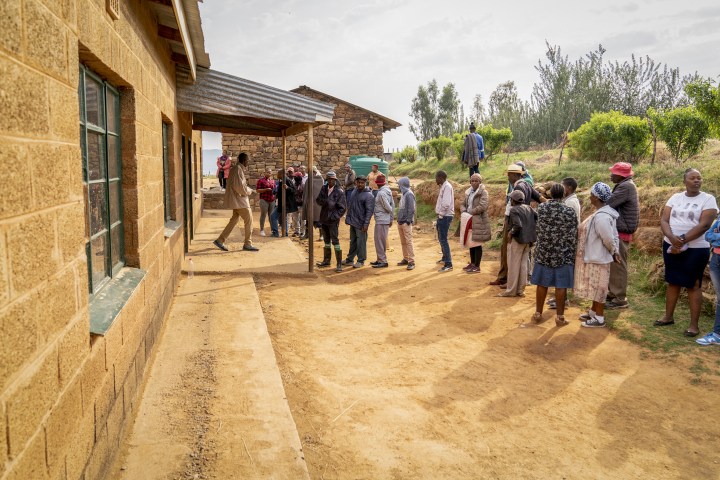
Lesotho’s parliamentary elections were going calmly and smoothly on Friday across the mountainous kingdom’s 3,151 polling stations, many of them remote.
With more than 50 parties contesting for 120 seats and a voters’ roll of barely 1,3 million, people have plenty of choice in Lesotho’s elections, though observers believe the real contest is among just four main parties.
Read in Daily Maverick: “Basotho go to the polls with yet another unstable coalition in prospect”
One of these is the wildcard in the elections, the very recently formed Revolution for Prosperity (RFP) party led by businessman Sam Matekane, reputed to be a billionaire. The other three frontrunners are the more familiar Democratic Congress led by Mathibeli Mokhothu, the current ruling All Basotho Convention (ABC) led by former finance minister Nkaku Kabi, and the Basotho Action Party (BAP), a breakaway from the ABC led by Nqosa Mahao.
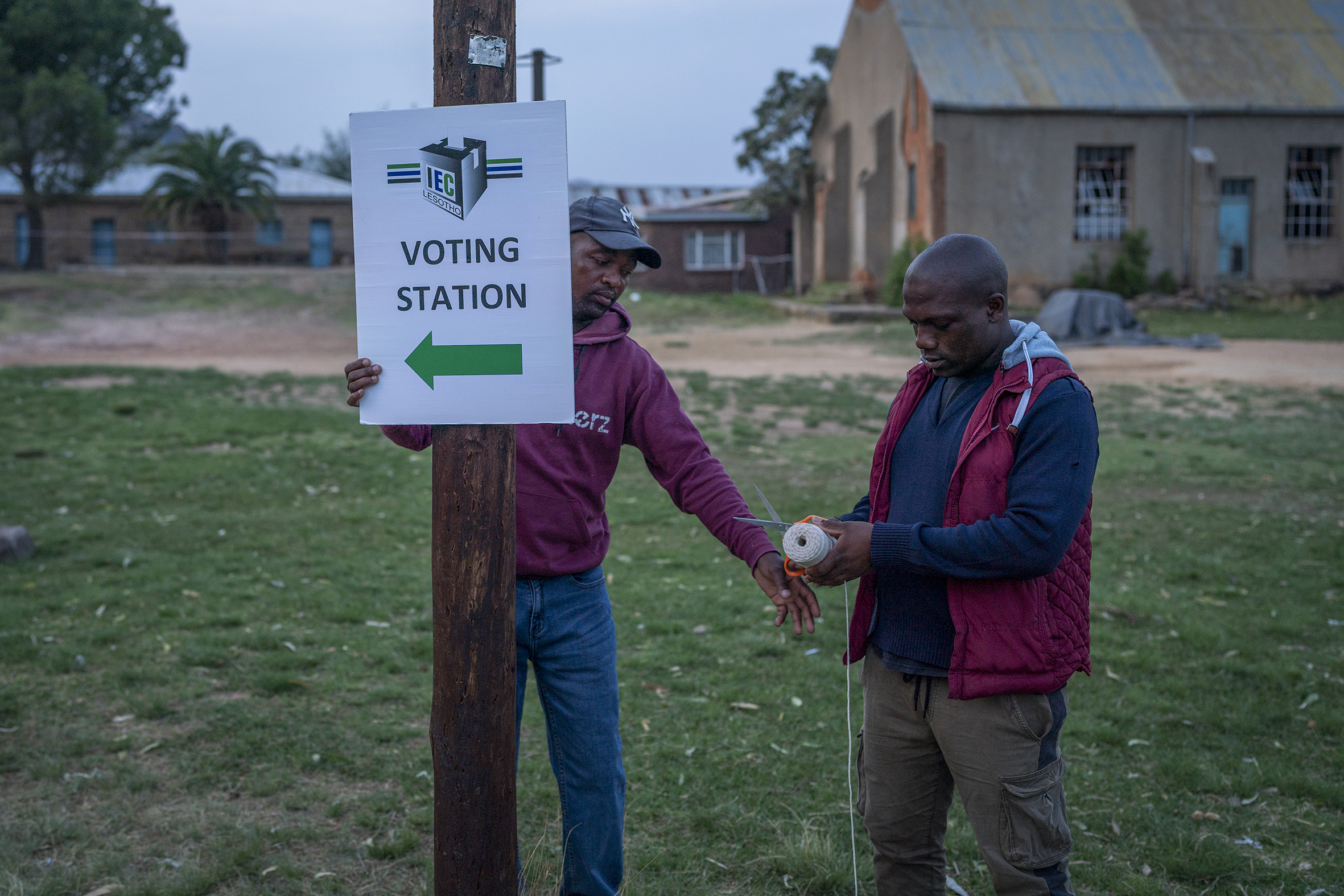
An official from the Lesotho Independent Electoral Commission at work on election day at St Joseph Primary School in Koro-Koro. (Photo: Shiraaz Mohamed)
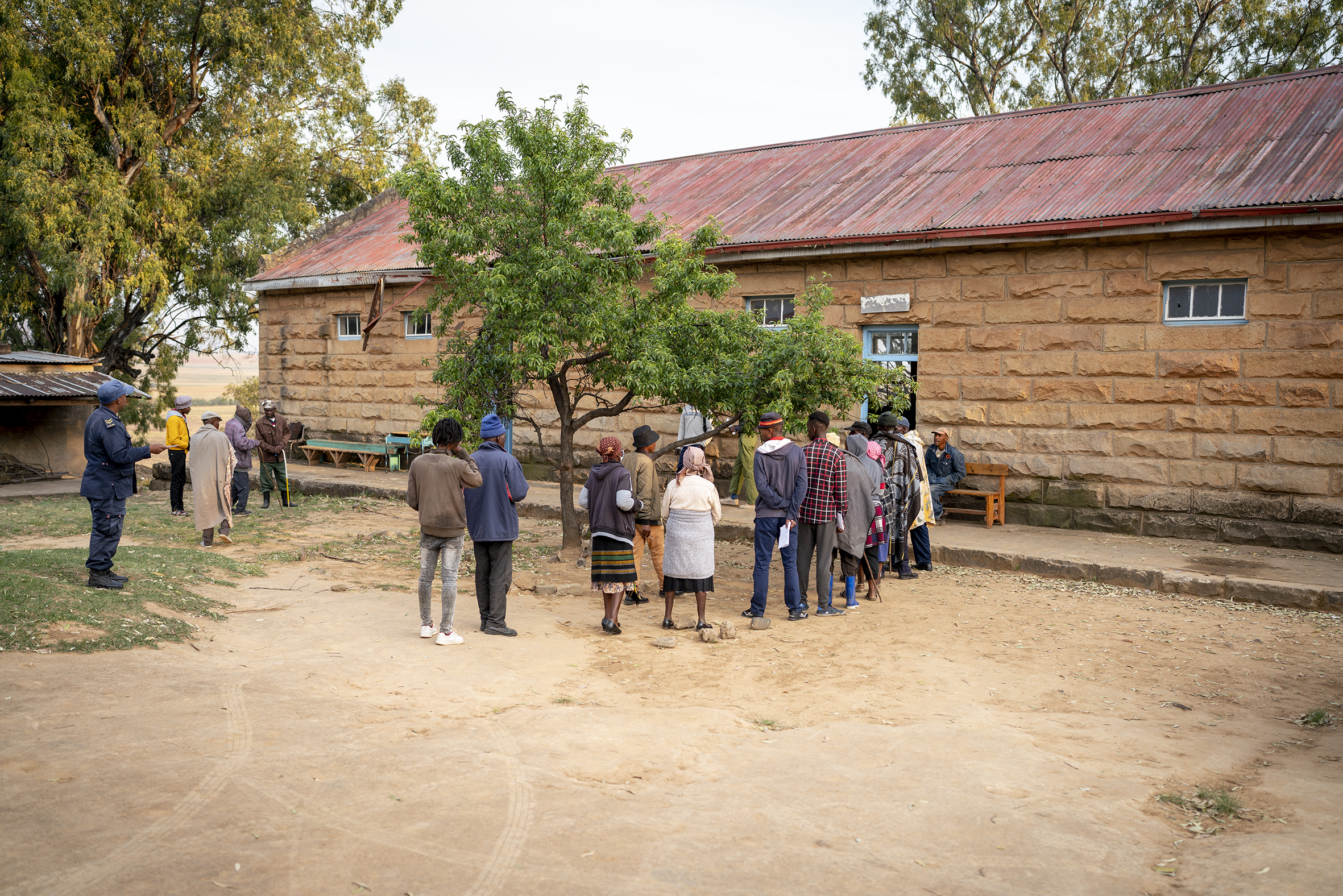
Voters wait in line to cast their vote at the St. Joseph Primary school in Koro-Koro, on October 7, 2022 where voting operations for the parliamentary elections are underway. October 7, 2022.
Photo: Shiraaz Mohamed.
The capital Maseru was quiet on Friday as many of its residents had abandoned the city on Thursday to travel to their rural villages where they have to vote in their own constituencies.
Independent Electoral Commission (IEC) officials told Daily Maverick the voter turnout was high and there were no major incidents. Some voters, however, had found they were unable to vote because their names were not registered on the voters’ roll at the polling stations where they went to vote. Several were redirected to their correct stations.
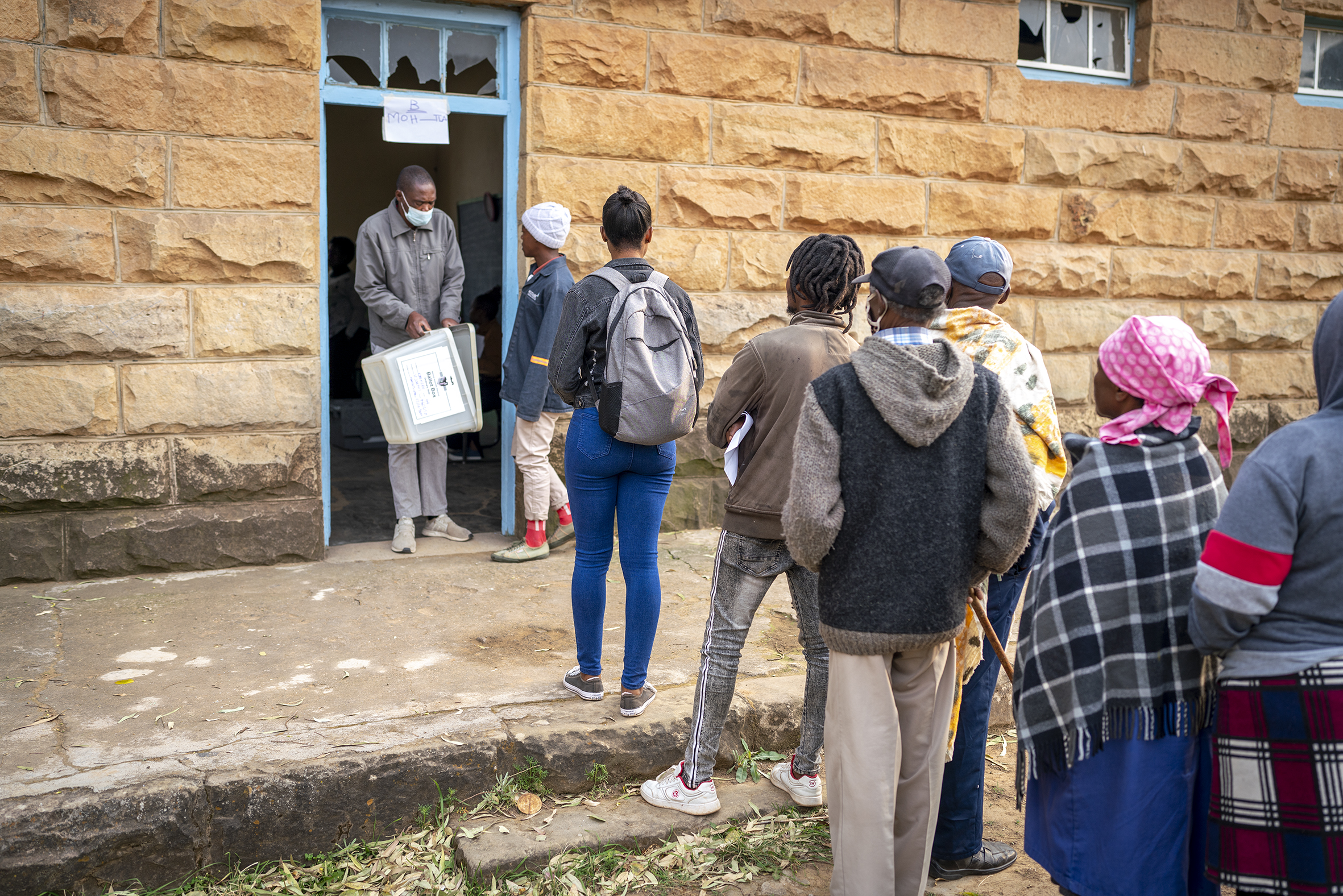
Voters at St Joseph Primary School in Koro-Koro. (Photo: Shiraaz Mohamed)
The IEC’s report of a high turnout was not apparent at the polling station at St Joseph School in Koro-Koro, about 40km south of Maseru. Fewer than 30 people were waiting when the polling station opened. Voting proceeded methodically and smoothly, but slowly.
At Mokema Primary School in the village of Mokema to the north of Koro-Koro there were more voters but voting also went smoothly.
Visit Daily Maverick’s home page for more news, analysis and investigations
The IEC officials said they expected to announce the final results by about Tuesday. Results at individual polling stations should be posted soon after voting closes at 5pm, giving a rough idea of the trend. But because of Lesotho’s “rocky terrain” and complicated electoral system, collating final results would take three or four days, they said.
Lesotho has an elaborate mixed electoral system with 80 constituency seats in Parliament allocated on a first-past-the-post basis and a further 40 seats allocated on a proportional representation basis.
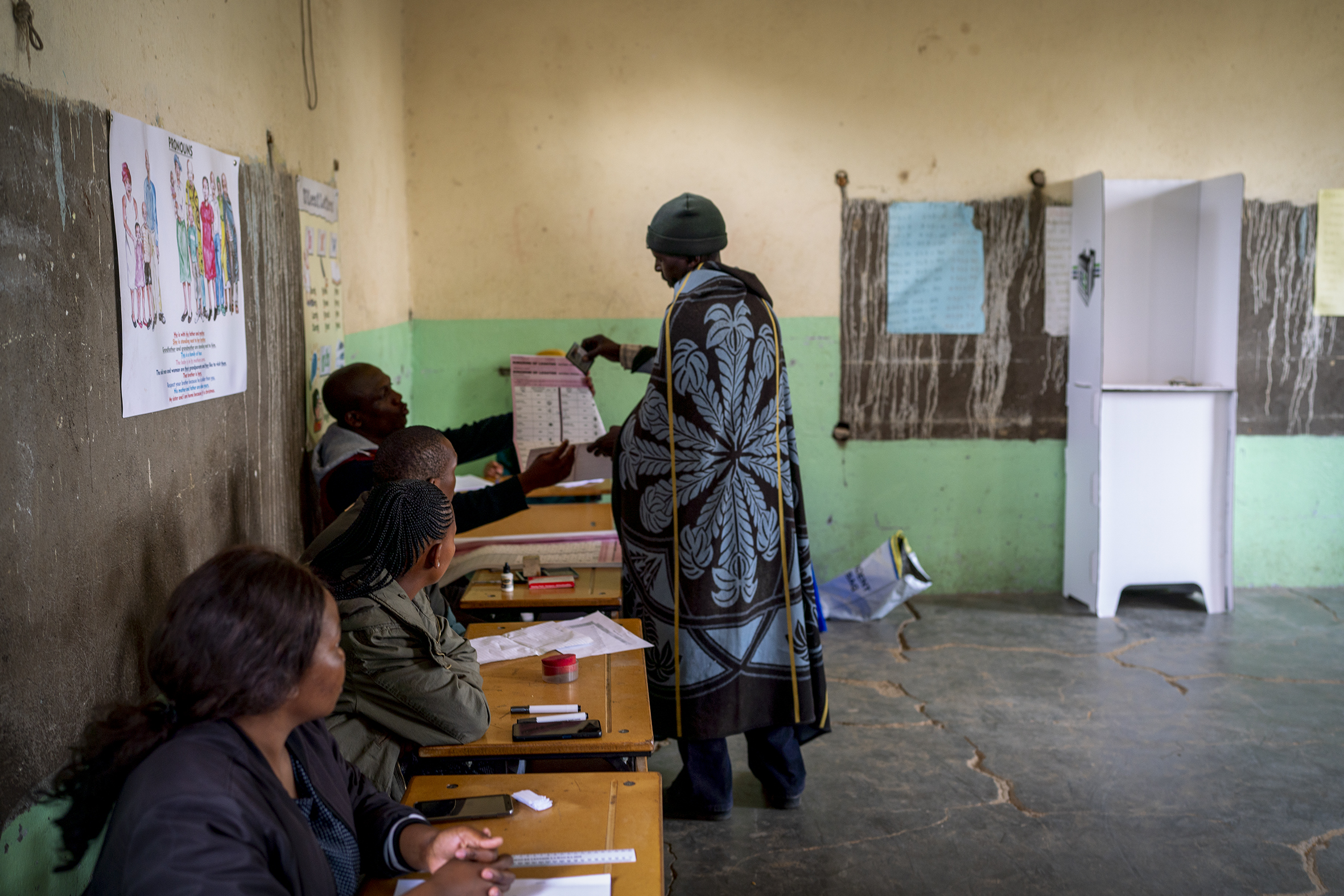
A voter receives his ballot paper at St Joseph Primary school in Koro-Koro. (Photo: Shiraaz Mohamed)
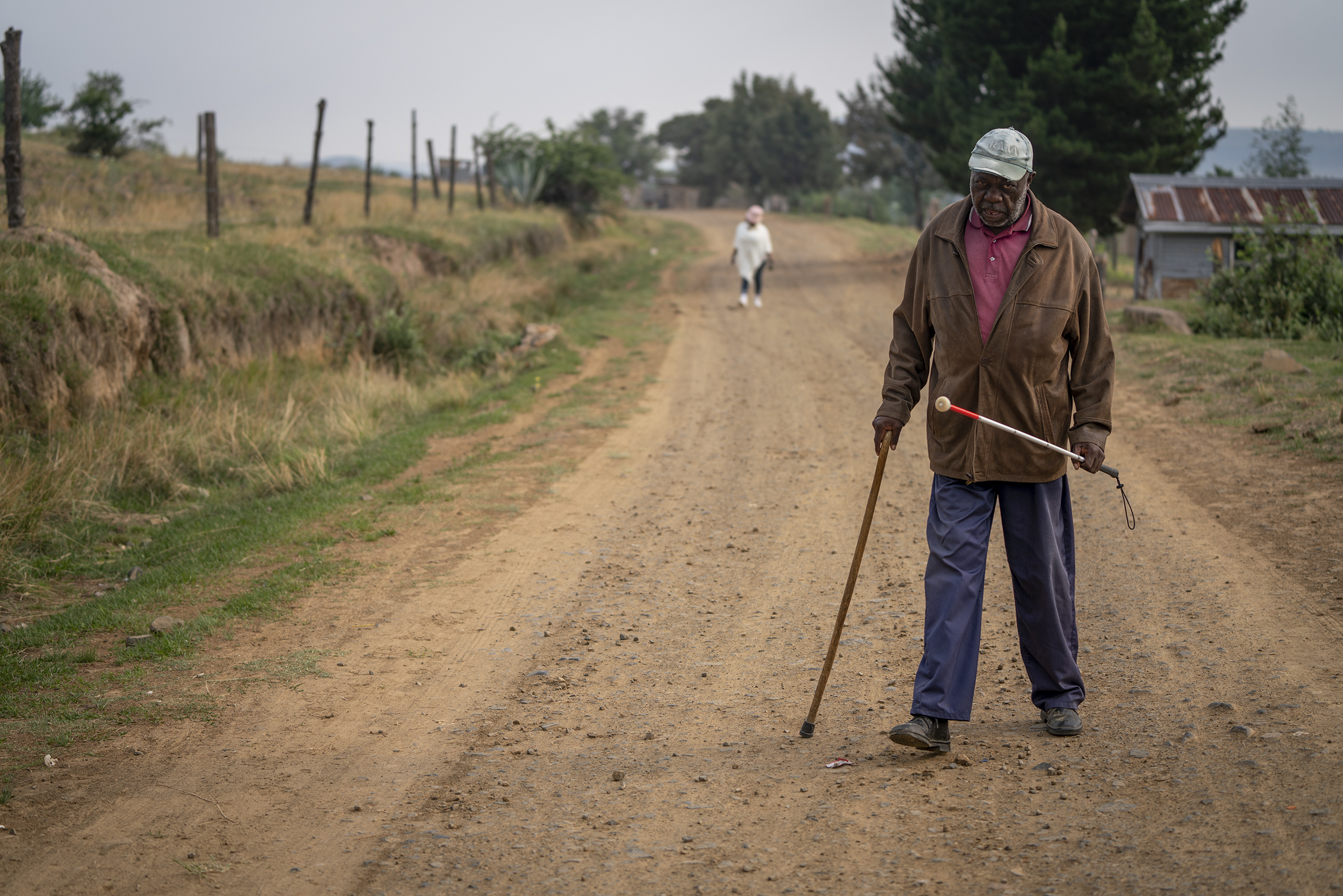
A voter makes his way to Mokema Primary School on the outskirts of Maseru on Friday. (Photo: Shiraaz Mohamed)
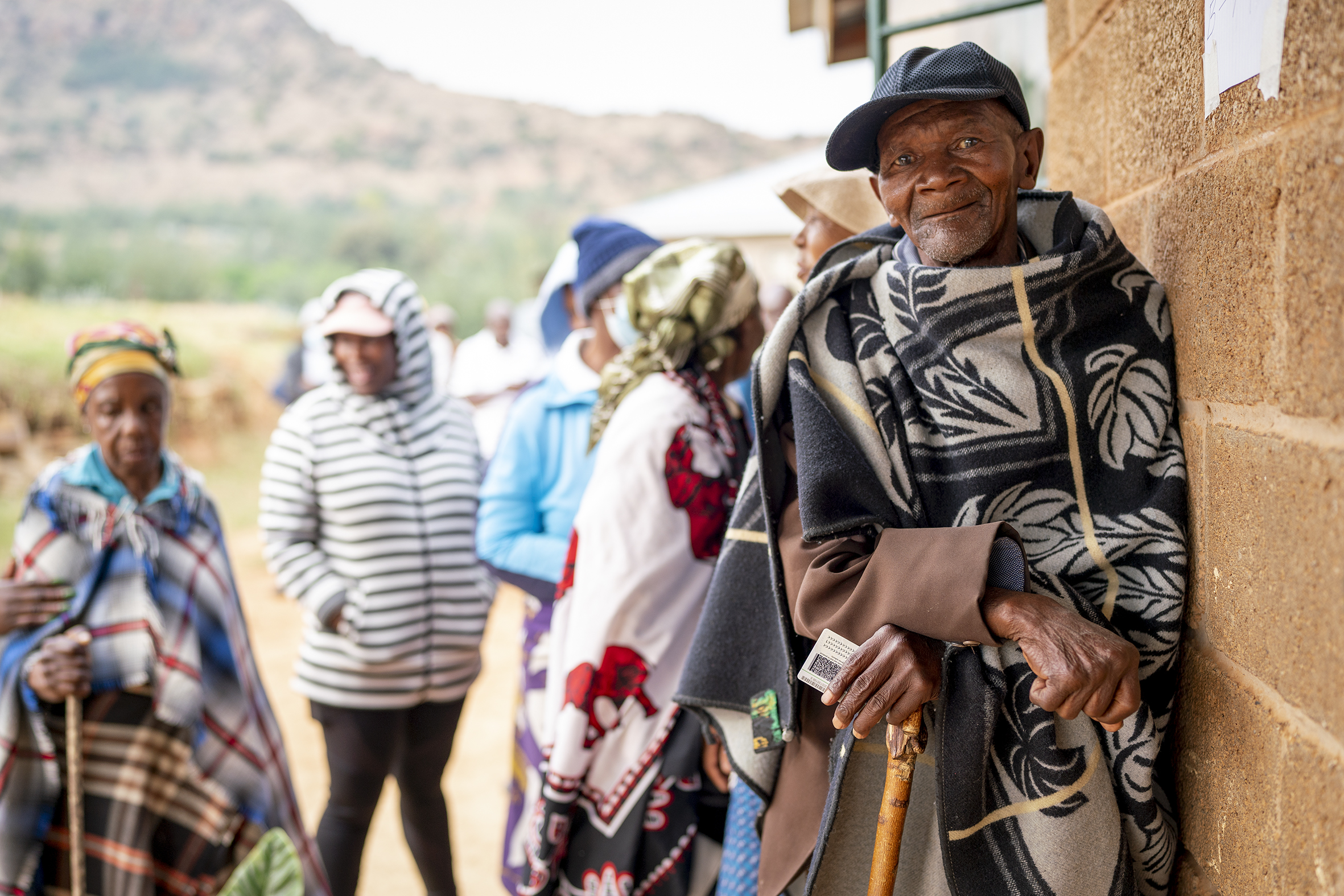
Voters stand in line at a polling station in Koro-Koro. (Photo: Shiraaz Mohamed)
Officials said the results from the 3,151 polling stations would have to be transported physically to 80 constituency centres where they would be collated and then again physically conveyed to 10 district centres to be collated and sent electronically to the national counting centre in Maseru.
Because of Lesotho’s rugged terrain, transporting the results from some remote polling stations and constituencies could take a while.
Once the results are known for the 80 constituency seats, complex calculations have to be done to allocate the 40 proportional representation seats. This has in the past dashed expectations created by the constituency vote.
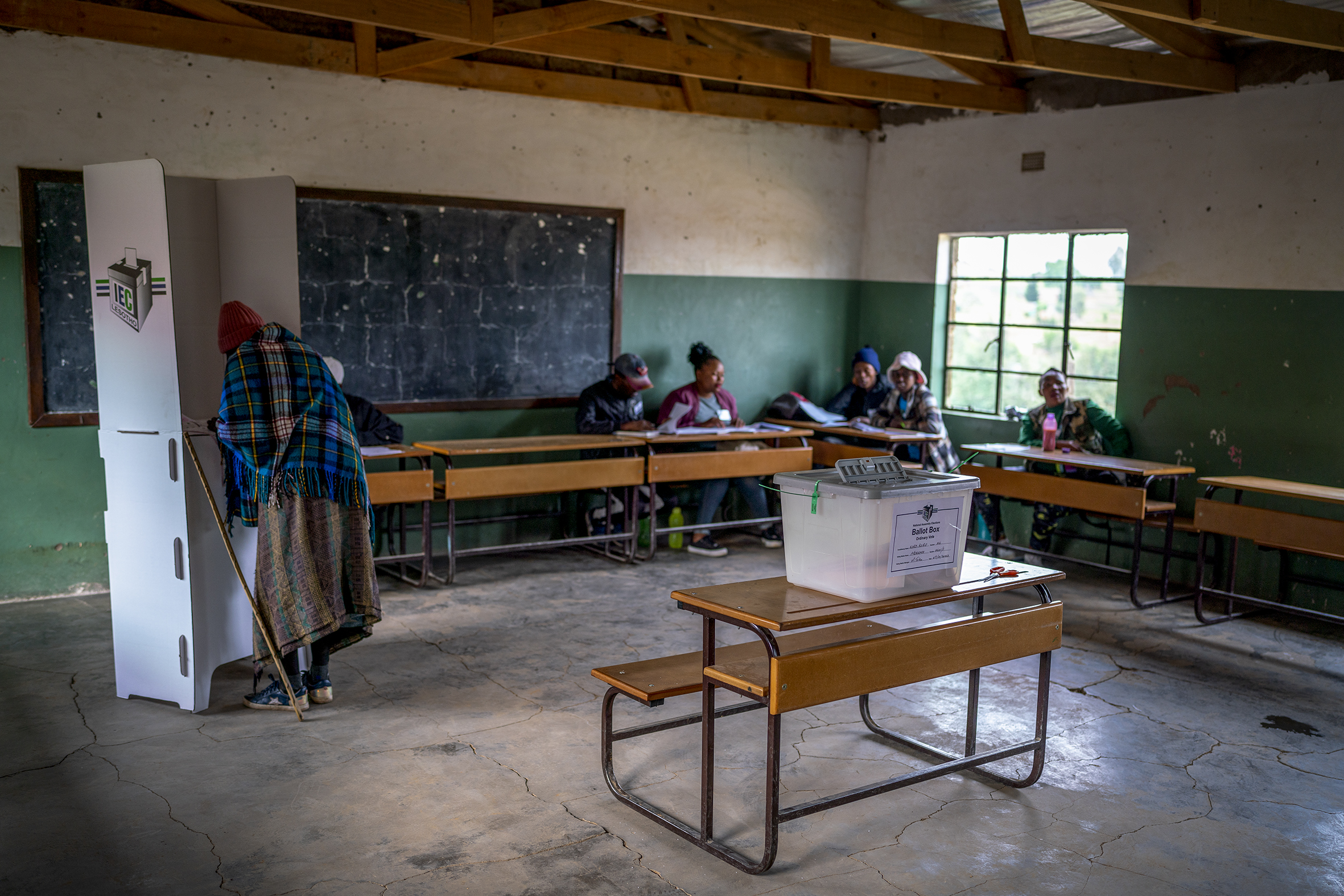
A elderly woman votes in the parliamentary elections in Koro-Koro. (Photo: Shiraaz Mohamed)
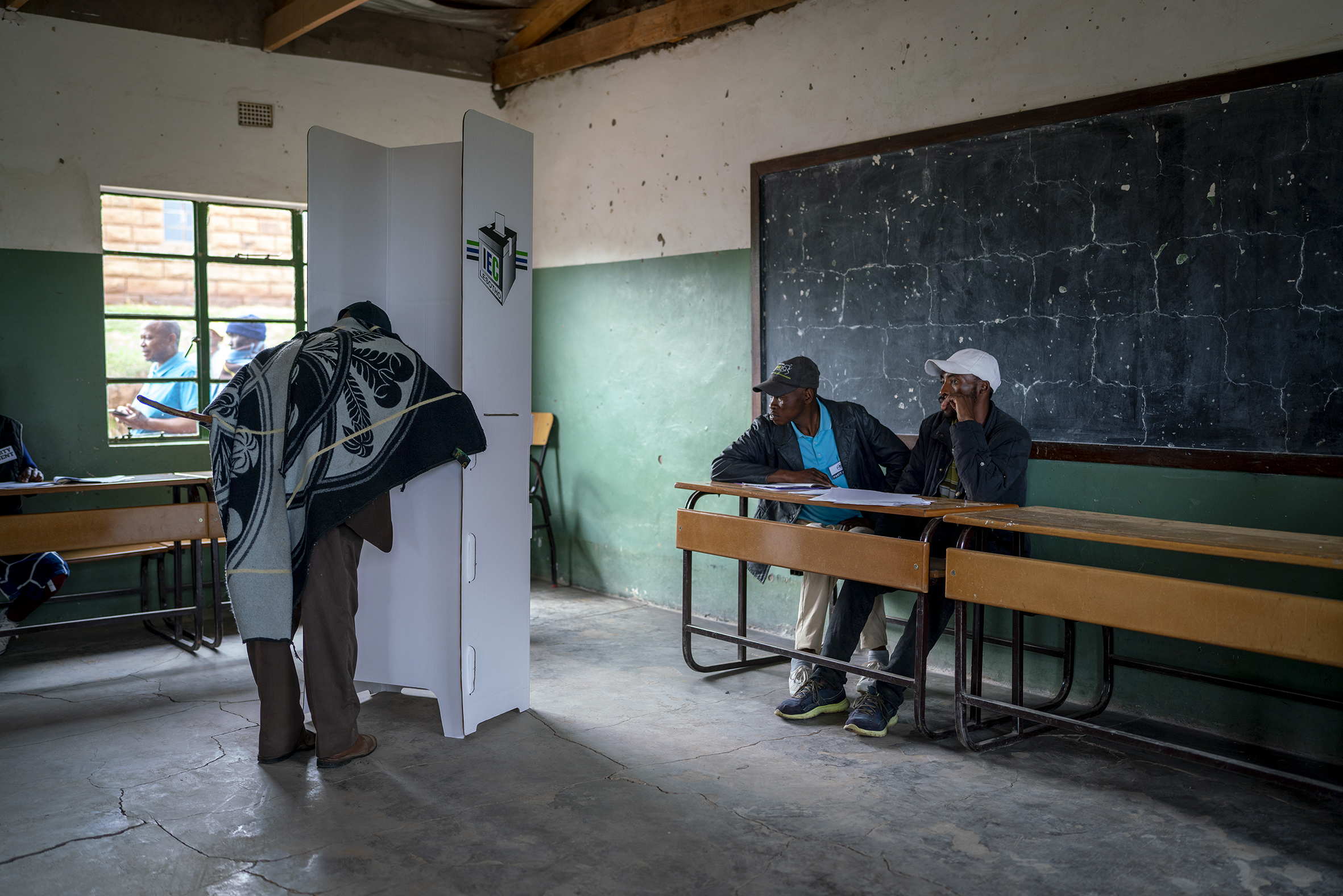
A man votes in Koro-Koro. (Photo: Shiraaz Mohamed)
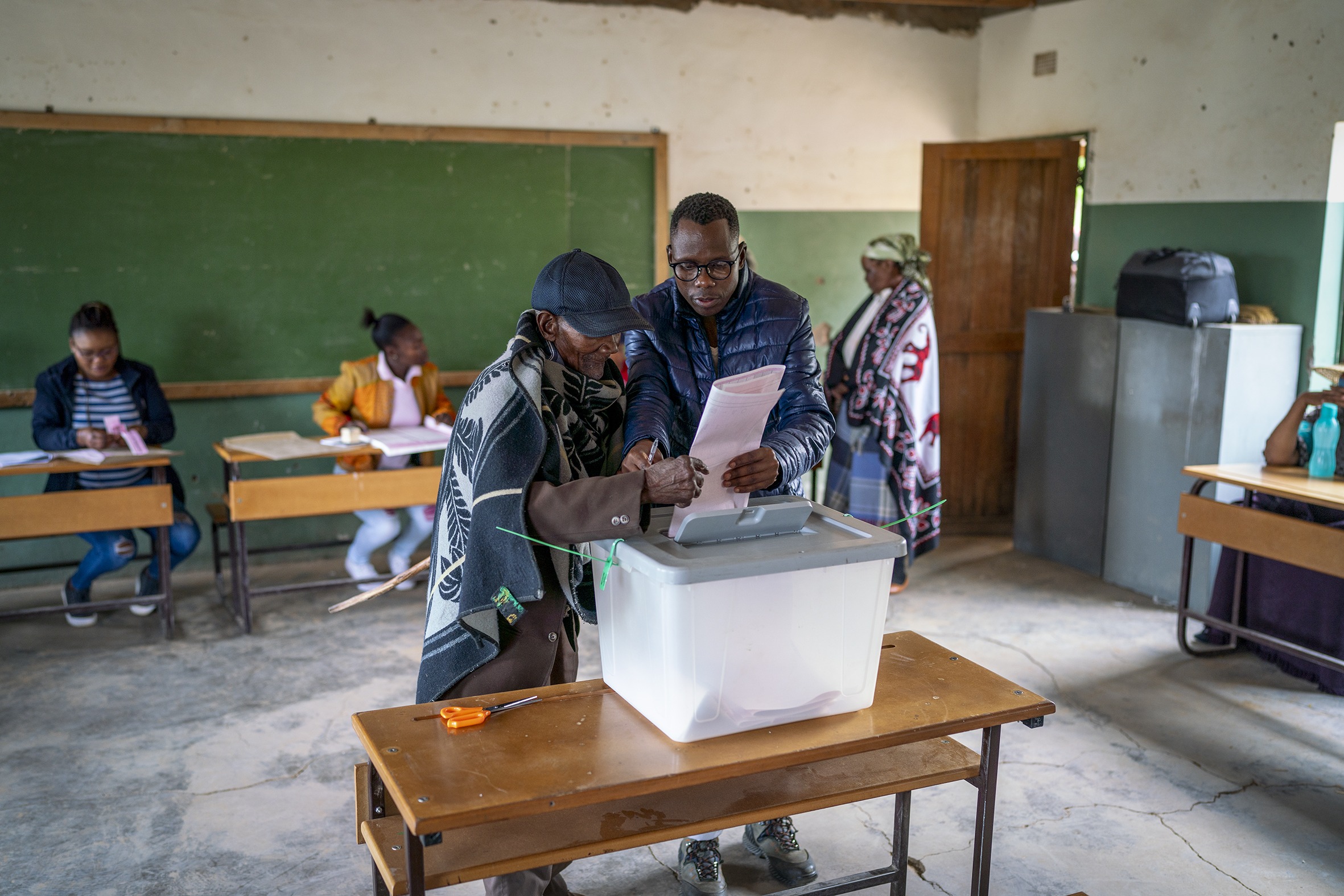
An IEC official helps a woman to cast her vote in Koro-Koro. (Photo: Shiraaz Mohamed)
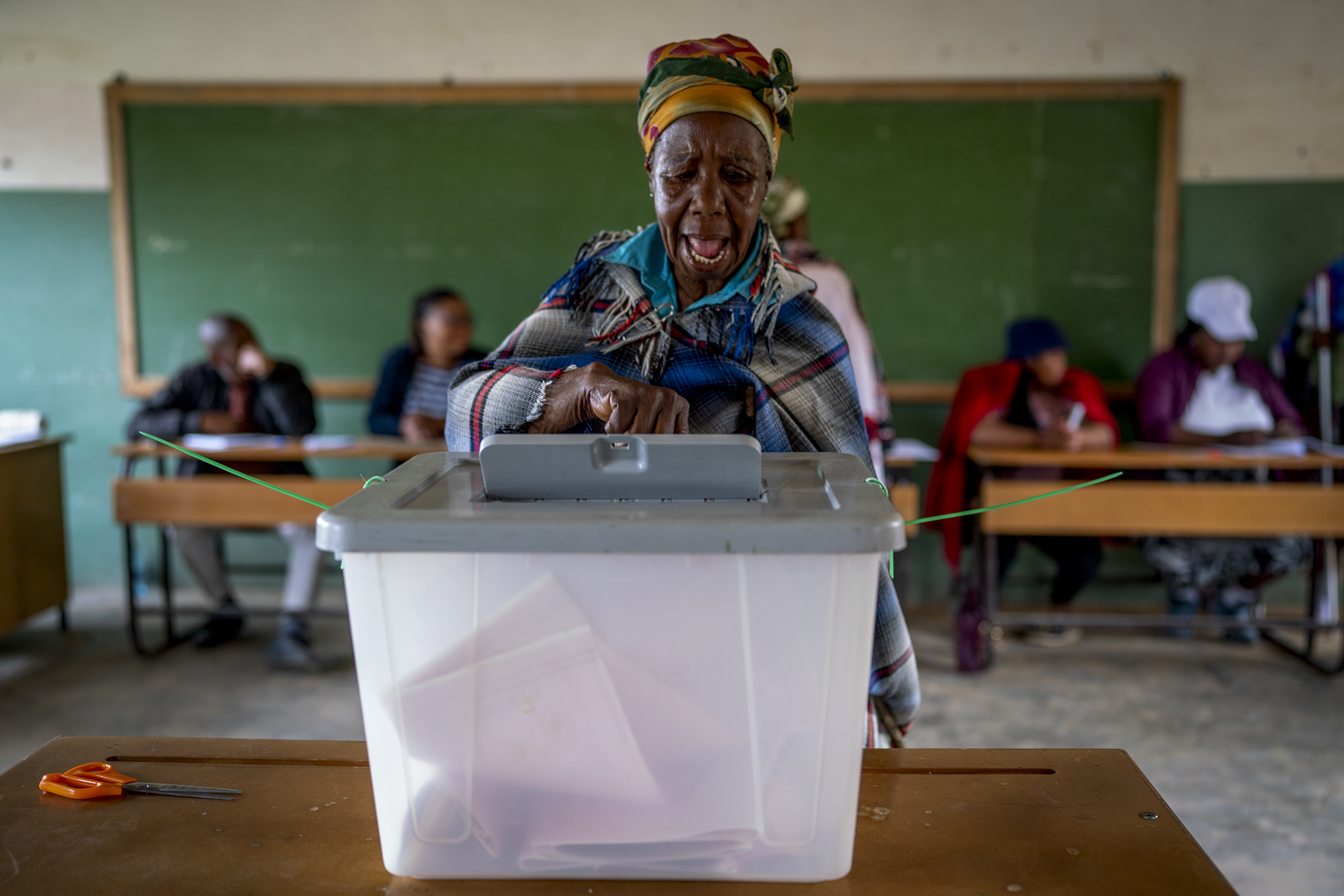
A voter at a polling station in Koro-Koro. (Photo: Shiraaz Mohamed)
DM



















 Become an Insider
Become an Insider
Comments - Please login in order to comment.